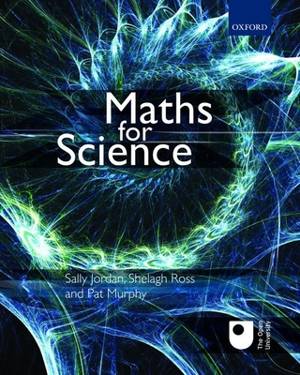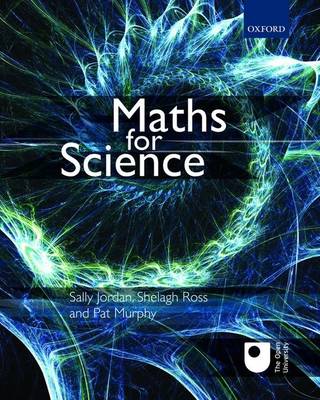
- Retrait gratuit dans votre magasin Club
- 7.000.000 titres dans notre catalogue
- Payer en toute sécurité
- Toujours un magasin près de chez vous
- Retrait gratuit dans votre magasin Club
- 7.000.0000 titres dans notre catalogue
- Payer en toute sécurité
- Toujours un magasin près de chez vous
67,45 €
+ 134 points
Description
Math is a tool for representing and investigating the nature of the real world: it can simplify the huge complexity of natural processes, enabling us to make predictions and test assumptions. Without math, the process of scientific enquiry would quickly stall. Yet, for many, math is seen as a daunting, theory-filled subject, with little relevance to the real world. This book overturns these misconceptions by providing a confidence-boosting overview of essential mathematical skills and techniques. With examples and practice problems throughout, it shows in a clear, unintimidating style why math is so important to the study of science, and encourages students to develop the essential skills for themselves. Building from the foundations of math--numbers, fractions, and units and scales of measurement--the book leads students through a range of widely used skills and concepts (e.g., equations, logarithms, differentiation, and probability and statistics), providing a complete course of essential math for science. DISTINCTIVE FEATURES
* Extensive examples and questions encourage active learning
* Focuses on the relevance of math to science in the real world
* Clear writing style COMPANION WEBSITE (www.oup.com/uk/orc/bin/9780199644964)
* For instructors: Contains figures from the book in electronic format (available to registered adopters of the text)
* For students: Includes additional exercises with solutions and a flashcard glossary
* Extensive examples and questions encourage active learning
* Focuses on the relevance of math to science in the real world
* Clear writing style COMPANION WEBSITE (www.oup.com/uk/orc/bin/9780199644964)
* For instructors: Contains figures from the book in electronic format (available to registered adopters of the text)
* For students: Includes additional exercises with solutions and a flashcard glossary
Spécifications
Parties prenantes
- Auteur(s) :
- Editeur:
Contenu
- Nombre de pages :
- 400
- Langue:
- Anglais
Caractéristiques
- EAN:
- 9780199644964
- Date de parution :
- 01-03-13
- Format:
- Livre broché
- Format numérique:
- Trade paperback (VS)
- Dimensions :
- 208 mm x 262 mm
- Poids :
- 1292 g

Les avis
Nous publions uniquement les avis qui respectent les conditions requises. Consultez nos conditions pour les avis.






